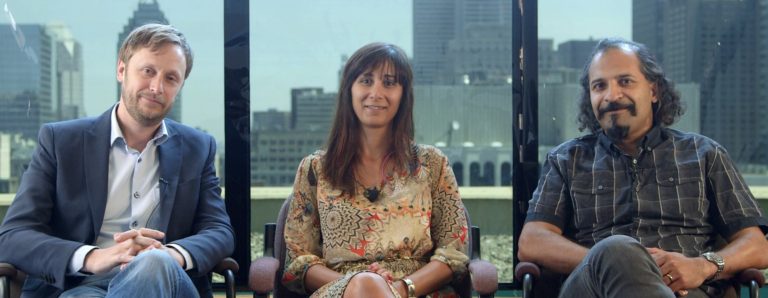New “Hate to Hope” Massive Open Online Course

As part of our work with our Lebanese partners, Project Someone has developed “From Hate to Hope: Building Understanding and Resilience” which is a trilingual, interactive, non-credit Massive Open Online Course (MOOC). Participants in the MOOC will:
- Explore the dynamics of hate including the ways in which people are manipulated to feel and express hate.
- Gain strategies for building resilience to hate through dialogue.
- Integrate best practices for using social media for advocacy.
- Analyze and develop strategies for using social media to build resilience in different sectors.
Hate to Hope will be piloted in January 2019, and available in English, French and Arabic in March 2019.

The UNESCO Co-Chairs for the Prevention of Radicalisation and Violent Extremism – David Morin, Ghayda Hassan and Vivek Venkatesh. An image from the MOOC’s introductory video.
The MOOC’s four modules are titled as follows:
- Understanding Online Hate
- Building Resilience Through Digital Citizenship Education
- Building Resilience Through Dialogue
- Social Media for Advocacy
Designed with different community stakeholders in mind, this MOOC addresses current issues surrounding hate and radicalization head on. Starting with an exploration of the distinction between hate speech and free speech the content moves on to look at how social media can be used to both traffic and challenge hateful messages. This MOOC is distinguished by its integration of multiple voices and perspectives on these issues. It also addresses hot topics like fake news, filter bubbles and tactics used by hate groups, which are analyzed with examples. More importantly, tangible solutions for prevention, resilience and advocacy, online and offline, are presented as participants are called upon to make a difference in their own sectors. Each module offers a wealth of varied, current and actionable knowledge, exchanges with peers, as well as interactive exercises, some of which are online, using the hashtag #AmalEspoirHope.
The MOOC will contribute to policy and decision-making among public policy officials, community leaders, women rights activists and higher education institutions represented by their Lebanese partner organisations, particularly in helping to create more capable and inclusive institutions.
